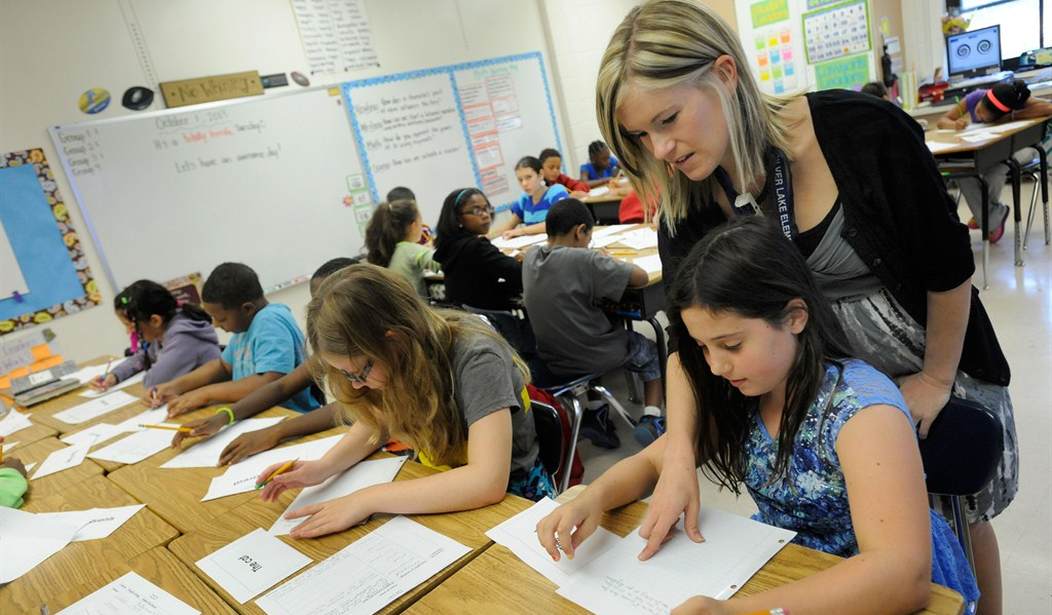It’s National School Choice week so it’s fitting that Jason Stverak, who is president of the Franklin Center for Government and Public Integrity, argued yesterday at The Hill that it’s high-time we finally have a national conversation about expanding educational opportunities in this country. He writes that while young Americans applying to colleges and universities have a wide range of options to pick and choose from, oftentimes poor children in grades K-12 have no other choice but to attend their local (and failing) public school. Hence a wide range of educational options modeled on the higher education model, he insists, is necessary to meet the diverse and changing demands of American families:
While far from perfect, the American higher education system is the envy of the modern world. But with our K-12 system lagging well behind those of many other industrialized nations, we continue to cling to the policies of the past, letting government decide which schools parents are allowed to send their children to. It’s long past time to apply the college mentality to elementary, middle, and high schools, and allow parents to “shop” for these schools with their own tax money to find the best fit for their children.
The American K-12 education system faces perhaps the most daunting task of any in the world. Over 70 million children live in the United States, and they come from every background imaginable, speaking dozens of languages at home, and growing up in settings as varied as urban New York, rural North Dakota, and the melting pot of California. With the most demographically diverse youth population in the world, it would be unreasonable to expect any singular educational program to be able to adequately meet the needs of each of these children.
In other words, the one-size-fits-all approach is not feasible or realistic. So what is the answer? Opportunity scholarships, he argues:
Opportunity scholarships can solve this problem. These programs, which are working to great effect in states like Indiana and Louisiana, return parents’ educational tax contribution to them in the form of a scholarship that can be used at any accredited school--much as Pell Grants and other forms of federal financial aid can be used at any public or private college. With the money that they’ve already spent on education back in their hands, parents can truly assume control over their children’s futures, and compare the attributes of various schools against each other. Families might choose a large public high school for one child, a small school specializing in arts for another, and a partially-online charter school for a third, all without having to dip into their savings. Moreover, as the cost of educating a child outside a traditional public school is often lower than present per-pupil spending, opportunity scholarships save school districts money, allowing them to reinvest in teachers, facilities, and technology.
School choice isn’t just an educational or economic issue however--it’s a moral one. The right school can permanently change a child’s life for the better and open up a world of opportunities, and for many low-income families, the present system keeps that school just out of their reach. Opportunity scholarships can shatter this unjust ceiling.
Recommended
The president will focus tonight on income inequality in his State of the Union Address, which of course significantly impacts inequities in public schools. After all, how is it morally permissible that poor children are routinely forced to attend schools that aren’t up to par? Why can’t they attend a different school, or perhaps continue their studies in the home? Each child is different, and therefore tailoring their educational needs to the right school is paramount. This decision, too, must be placed in the hands of parents, who understand far better than any politician or government agency what is best for their children.
Republicans and Democrats both believe in strengthening U.S. public schools, and providing more opportunity to all. But how can that happen unless American families are given the freedom and opportunity to send their kids to the schools where they are most likely to succeed? Until that happens, a generation of young people will continue to be trapped in a system that perpetuates inequality and poverty.
School choice is one possible avenue to give all children, to borrow a line from Lincoln, "an unfettered start and a fair chance in the race of life."

























Join the conversation as a VIP Member